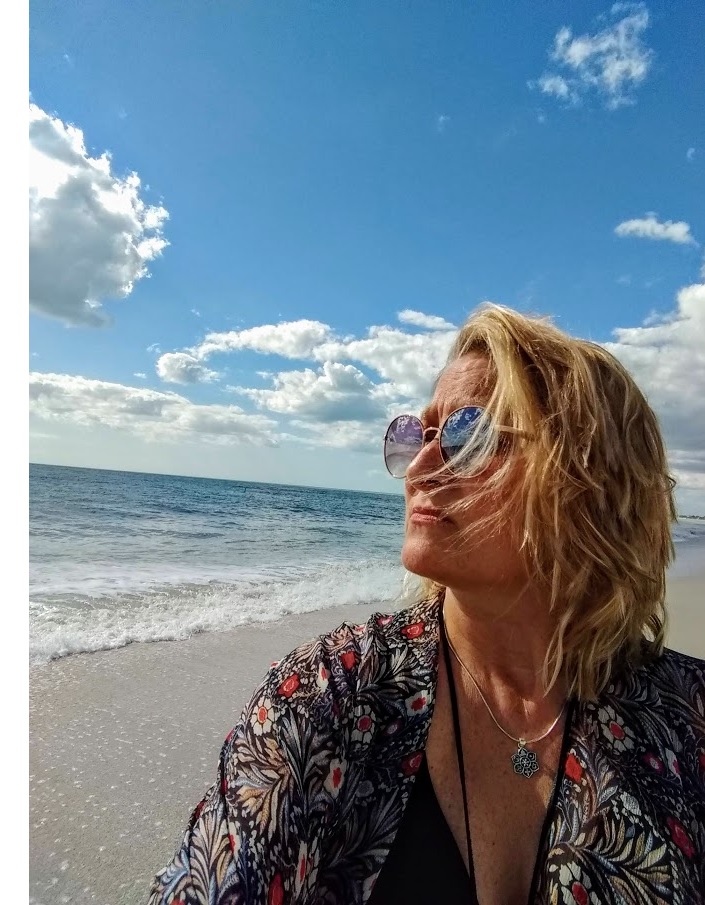by Chris Prange-Morgan

Father’s Day weekend began with the paramedics in our living room. I knew something was off when my 80-something dad walked in the door confused, disoriented, and vomiting. He spent five days in the hospital with what was diagnosed as sepsis, but I was thankful we caught it early enough that he could return home to my 70-something mother, who was understandably distraught and reeling from the whole ordeal.
That was one of the first blows in what turned out to be a brutal summer. It still feels like I’m coming up for air. A planned surgery for our son on June 13 was quickly followed by the double-whammy of my dad and mother-in-law both ending up in the hospital the same weekend. Like so many other people in the sandwich generation, my husband and I toggle between advocating for our aging parents and focusing on our kids. We plan for worst-case scenarios, hope for optimal outcomes, and carve out as much quality time as we can for each other. We know that time is fleeting.
The same week my dad went into the hospital, our beloved 13-year-old cat Oscar started rejecting his food. What we first thought was a bad reaction to all the paramedic hullabaloo in our living room was eventually diagnosed as gastrointestinal lymphoma. Our hearts ached as we transitioned from palliative medications to kitty hospice. In his final days, Oscar sprawled between my daughter and son at their computers on the dining room table, reaching out his paw as if to say, “I really love you two, but I have to leave you.”
Oscar’s blinky-eyed affection permeated our home for so many years. He was my comfort buddy as I recovered from my climbing injury and eventually from limb loss. Saying goodbye to him felt like waving farewell to an old sage who saw into my soul. His final months were punctuated by my driving back and forth between Wisconsin and Illinois to finish up a frustrating, months-long process of obtaining a new prosthetic leg.
Life can feel heavy and hard
The new kitten we brought home from the Humane Society in the past few weeks reminds me of our society’s tendency to constantly grasp for fun and levity as a distraction from grief. And while our cute, little grey-and-white Poppy has certainly brightened our lives, she hasn’t replaced our wise Oscar—nor has she buoyed us for the onslaught of losses that are baked into the years ahead as kids leave for college, parents continue to age, and our lives go on changing in huge ways.
In her book, Bittersweet: How Sorrow and Longing Make Us Whole, Susan Cain suggests: “Whatever pain you can’t get rid of, make it your creative offering.” Pain from our losses can ignite creative, dynamic endeavors that we can offer to the world in the form of music, writing, art, acts of service, or whatever draws us out of our misery into the collective ether.
As I talk with patients in my role as a hospital chaplain, I’m acutely aware that these deep, honest, sacred states of longing unite us at our core. Like an auger into our being, loss—loss of abilities, loss of dreams, loss of loved ones, and the like—has the potential to sharpen our awareness that we’re not alone.
I feel this dynamic strongly whenever I’m in a room or on an outing with other amputees, as people share their stories of what happened to them and how they’ve endured. Without exception, each time I walk away from these experiences, I feel validated, grateful, and whole—not because I’ve miraculously grown my leg back, but because I’ve connected with amazing folks on levels I never imagined were possible.
It’s true that many folks appear to have “overcome” their limb loss and have gone on to do great things. People have poured their energies into running marathons, delivering TED talks, writing books, and other great feats. But we shouldn’t pretend that grief and loss just disappear. As Cain continues to assert, “No matter how much your culture tells you to smile, it’s not human to simply move on.”
Grief teaches you to juggle emotions
While the bittersweet nature of life unites us, it also has the potential to deepen our relationships and make them become more authentic.
Cain quotes Nora McInerny, a widow and author of the books Terrible, Thanks for Asking and No Happy Endings: “What can we do other than try to remind one another that some things can’t be fixed, and not all wounds are meant to heal? We need each other to remember, to help each other remember that grief is this multitasking emotion. You can and will be sad, and happy; you’ll be grieving, and able to love in the same year or week, the same breath.”
Our surviving cat, Nina, is still looking for her old friend Oscar. Widowed spouses can mourn for decades, and some die of takotsubo cardiomyopathy (broken heart syndrome). Many of us who have suffered limb loss continue to complain of phantom pains. My children who joined our family through adoption will never not wonder about their birth parents. Our bodies continue to harbor our losses despite our intentions to move forward, and I think they’re reminding us that we need each other.
There is no right way to navigate our unwieldy losses. But we can be kind to ourselves and give ourselves the permission to multitask with our feelings as we reach in the dark for a dawning new day.




